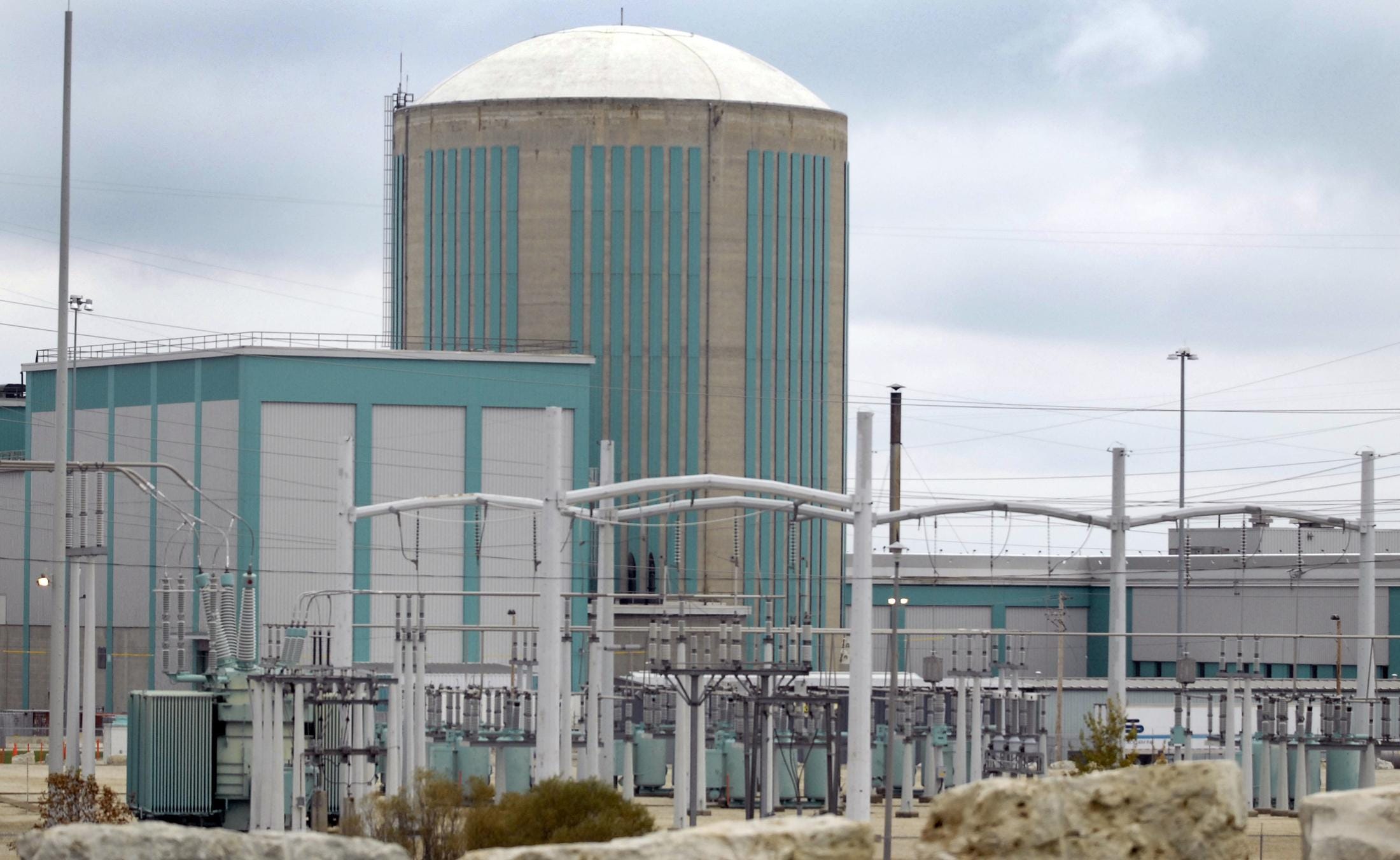Kewaunee nuke plant entitled to $12M in tax refunds

CARLTON – Local school districts and government owe almost $12 million as part of a settlement with the owner of a shuttered nuclear power plant.
Dominion Energy Kewaunee Inc. is entitled to $11.9 million in refunds and/or credits for excess 2015 and 2016 property taxes paid by the Kewaunee Power Station, according to an agreement between the plant owner and the town of Carlton.
The Kewaunee School District, Kewaunee County and Northeast Wisconsin Technical College would repay the $11.9 million within 10 years once a judge has accepted the agreement. The agreement exempts the town of Carlton, where the plant is located.
The overpayments were collected based on an assessed value that Dominion argued far exceeded the plant’s value. Dominion initially filed suit over the assessment in 2015, then sued the town again in 2016, seeking to cut the valuation from $457.4 million to barely $1 million.
Officials feared that Dominion had a good chance of winning if the case had gone trial, as scheduled, in February. The plant, which once had employed 632 people, has not produced power since 2013. Much of the machinery has been removed, and an attempt to sell the plant for $50 million fell through.
Those factors made a $457 million assessment difficult to defend, the attorney who represented the town said.
‘Bottom-line impact’
While the exact impact on school and local government tax collections is not immediately clear, the agreement sets the assessment at less than 1/30th of the value the town had previously assigned. The new assessment of $15 million means the plant will pay significantly less in taxes for the next eight years.
Kewaunee’s school superintendent didn’t return a call seeking comment, and representatives of the county and NWTC said they need time to determine exactly what the budget impacts are. Bob Mathews, NWTC’s vice president of business and finance, estimated that Dominion overpaid the college about $700,000 over the two years, but said the exact figure has yet to be determined.
“Obviously, this is an issue that the entities are trying to figure out,” Mathews said. “We’re still trying to understand the bottom-line impact.”
Estimates that then-county Board Chairman Ron Heuer made last year projected the losses at $250,000 for the Kewaunee schools and $800,000 for NWTC over the two years for which the plant was over-assessed. That’s a significant loss in a rural county of barely 20,000 residents.
Attorney Ben Brantmeier, who represented the town said the settlement, said it is about the best outcome that local government could have hoped for, considering that Dominion had a strong case that the plant was overassessed.
The 568-megawatt plant, on the Lake Michigan shoreline south of the city of Kewaunee, has begun a “decommissioning” process that’s likely to take about 60 years.
‘Serious problem’
Brantmeier said the settlement allows the schools, county and town to know what they’ll receive in annual revenue from the plant from now to 2024. It also gives them several years to prepare for the possibility that the plant’s assessment will be further reduced when the agreement expires.
Had the case gone to court, Brantmeier said, “you don’t know what outcome is going to be. Had we fought it all the way, we could have had a serious problem.”
In its lawsuit, Dominion had contended that the market value of the plant property is zero, and the fair market value of “personal property” on the site is $1.28 million. The town placed a value of $246.7 million on the land and power plant, plus $210.7 million on personal property.
The lawsuit was dropped as part of the settlement agreement.
Brantmeier praised Dominion for not seeking to bankrupt the communities and schools that tax the plant. Carlton’s board unanimously approved the deal on Jan. 14.
Nuclear plant closings often create difficulties for host communities, many of which are rural and sparsely populated.
When the Maine Yankee nuclear plant closed in the late 1990s, its annual tax payments to the community of Wiscasset, Maine, fell from $13 million to about $6 million, the New York Times reported. People’s property tax bills doubled. That’s in addition to the loss of hundreds of good-paying jobs.
“Closings bring extensive economic hardships to the communities and regions where the plants are located,” urban planning professors John Mullin of the University of Massachusetts and Zenia Kotval of Michigan State wrote after studying the closing of another New England plant.
Economic disaster?
When leaders in a central New York county learned in 2016 that Entergy Corp. planned to close the James A. Fitzpatrick nuclear plant, they began preparing for what one official termed, “an economic disaster that could’ve taken decades and decades to recover from.”
“We were looking at losing a payroll that was about $70 million annually, taxes that were about $17 million a year,” said L. Michael Treadwell, chief executive at the Oswego County Industrial Development Agency. “The school district was going to be losing well over 50 percent of their budget.”
The Mexico Academy & Central School, the local school district, projected that it would lose $2.8 million in revenue, and leaders decided to eliminate 19 jobs. Disaster was averted when Exelon Generation agreed to buy the plant for $110 million and keep it open, but Treadwell said the threatened closure was the equivalent of the county seeing its life flash before its eyes.
“It didn’t feel like we were going to fall directly off a cliff,” he said. “But it was close to it.”
[email protected] and follow him on Twitter @PGDougSchneider
This article originally appeared on Wisconsin: Kewaunee nuke plant entitled to $12M in tax refunds










